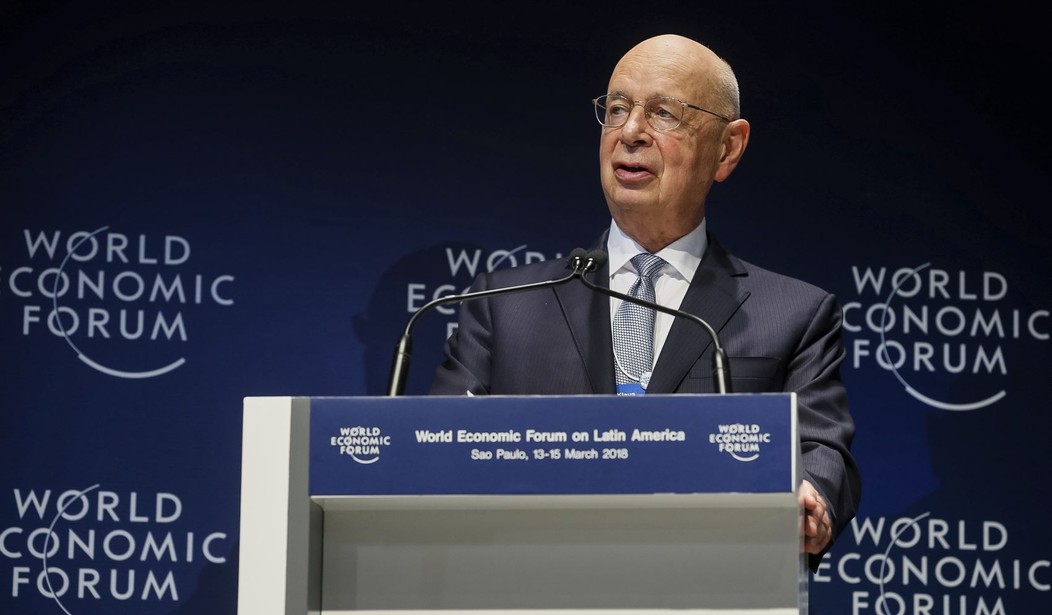Green New Deal proponents like to throw around the phrase “climate justice.” This phrase refers to the idea that marginalized communities are harmed the most by the predicted impacts of climate change. The reality is that green-energy initiatives often ravage these communities and the environment. The green-energy movement is nothing more than a massive wealth distribution scheme meant to fundamentally change the West’s economic systems.
The goal is evident when you hear Klaus Schwab, founder and chairman of the World Economic Forum (WEF), talk about the “stakeholder capitalism” framework he has been pushing for the last 50 years. It is also evident in the Environmental, Social, and Governmental (ESG) business reporting framework proposed by the world’s largest financial institutions. It’s ominous that BlackRock, the world’s largest asset manager, has decided to use this framework to evaluate investments.
Recommended: Democrats Move to Take Over Your Credit Score and Go Full ‘Woke’ – Just Like Communist China
You should be terrified when Democrats seem to embrace the idea that the government should take over credit scores. The federal government could apply the same ESG criteria to individuals, requiring them to purchase certain types of products or make particular “green investments” in their property or financial portfolios to maintain a decent score. Imagine what could happen to your score if you purchase a gun, homeschool your child, or subscribe to our VIP program.
The “E” is just a mechanism to force the “S” and the “G” portions of the framework. The Social and Governmental parts have the potential to be extraordinarily authoritarian and financially punish “wrong think.” However, the environmental portion harms marginalized populations, makes the middle class more impoverished, and hurts the environment. Here are a few, but by no means exhaustive, examples.
In a rare moment of honesty, CNN described how the European wood pellet mandate is hurting poor communities in the American South. In 2009, the European Union (EU) classified biomass as a renewable energy source. The American South became the primary producer of this energy source. Earlier this year, the EU celebrated when renewables, including biomass, surpassed the use of fossil fuels for the first time since measuring it. However, as CNN notes:
But scientists and experts say it’s too early to celebrate, arguing that relying on biomass for energy has a punishing impact not only on the environment, but also on marginalized communities — perpetuating decades of environmental racism in predominantly Black communities like Northampton County, where Macklin and his family have lived for generations.
The EU is only reducing its carbon footprint on paper. The plants that make wood pellets in the U.S. run on fossil fuels, as does the equipment used to cut down, collect, and transport trees. Burning wood also releases far more carbon and is less efficient than coal, natural gas, or nuclear energy.
What the EU is doing to the American South is analogous to what the United States and industrialized countries— dedicated to zero carbon emissions—are doing to China and Tibet. The batteries to run electric vehicles store the energy from solar panels, and the panels themselves all require rare metals. The United States has reserves of these metals but imposes stringent regulations on mining them because of the environmental impact.
Related: China Is Creating Crises in Asia That Americans Know Nothing About, Free Tibet Activist Says
China has no such regulations. One of the most vulnerable environments, the Tibetan plateau, is paying a high price. Tibet has some of the largest reserves of uranium and other metals, which the Chinese are mining ferociously. Tibet has the third-largest ice mass globally, and it is melting 70% faster than the others because of the relentless industrial activity. There is now a significant amount of black visible on the face of the mountain range, where the rock was entirely covered with snow and ice ten years ago. For all the screaming about melting ice, this seems counterintuitive.
Also, manufacturing solar panels and batteries uses energy-dense fossil fuels, not solar and wind. As Alex Epstein, author of The Moral Case for Fossil Fuels, notes:
A lot of that electricity is used to build unreliable solar panels and wind turbines for us. Of course, we don’t mostly build them here because they have to be built with cheap energy which means they have to be built with fossil fuels. They are not built with solar panels and wind turbines, obviously. So, you have China making this very strong strategic move to get us to unilaterally disempower and for them to empower.
Most Americans aren’t aware that China uses five times the industrial electricity of the United States. The vast majority of this energy production comes from coal. Last year China had a five-year high in coal production and imported record levels of oil.
Restricting the production of fossil fuels is already raising gas prices in the United States. As colder weather approaches, the cost of heating homes in cold climates will also rise. This inflation hurts the middle class the most, as low-income Americans often receive subsidies. In 2013, electricity became a luxury good in Germany because of the abrupt shift to wind and solar power, hurting the middle class and poor. The impact was so large that it required the country to reevaluate its green energy policies. The United States sees the beginning of a similar trend with seasonal blackouts in California during high-demand summer months and in Texas last winter.
Related: Texas, California Blackouts Reveal Fatal Flaw in Biden’s Energy Plans
Thanks to the convergence of groups like the WEF, international banks, and BlackRock insisting on green investments, do not be surprised to see demands placed on individual Americans. In several years it may not be possible to get a loan for a traditional gas-powered vehicle. Mortgages may be contingent on homebuyers spending tens of thousands of dollars on green-energy upgrades.
These examples are just a few of the ways global elites can force regular Americans to relinquish their private property and engage in the vision of Schwab and the other global elites aligned with the WEF. It has nothing to do with improving lives in marginalized communities or saving the planet. Green energy will make the middle class in the West poorer, the world dirtier, and everyone more dependent on global corporations and the government.










Join the conversation as a VIP Member